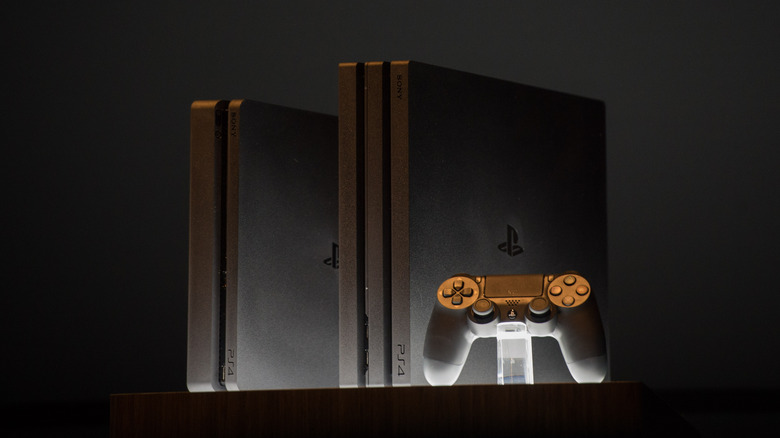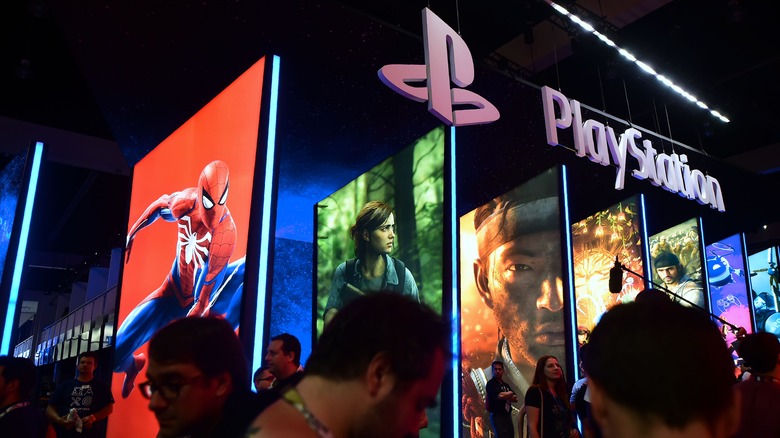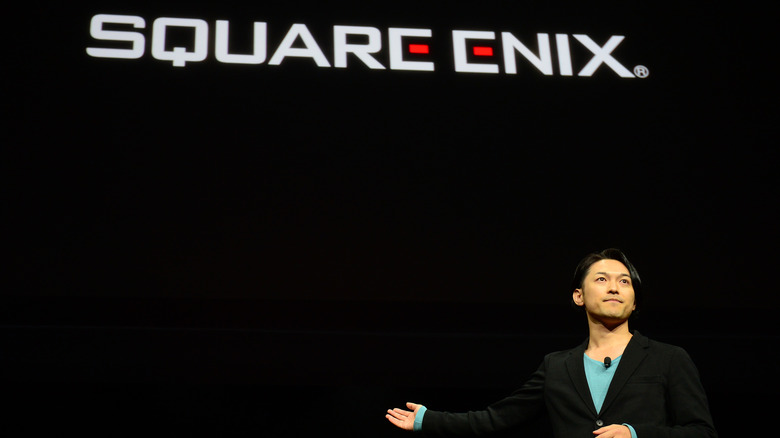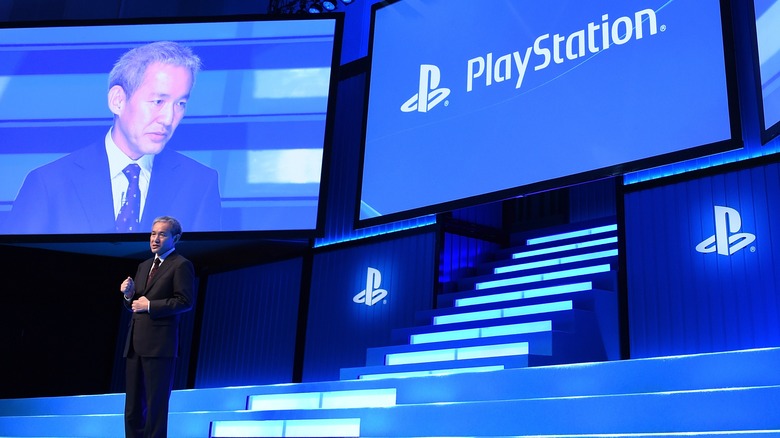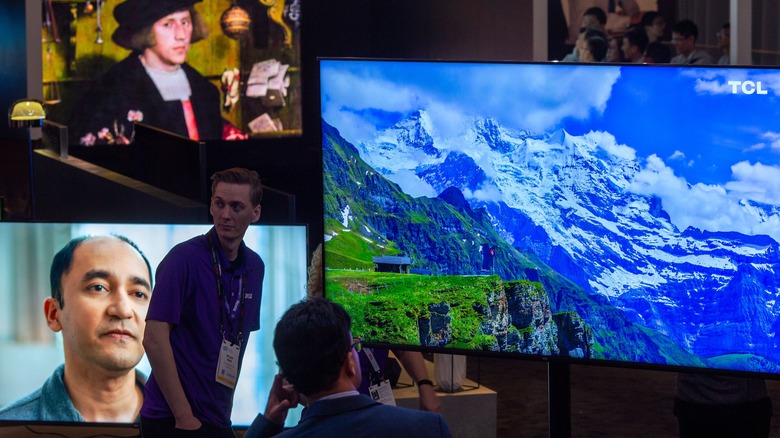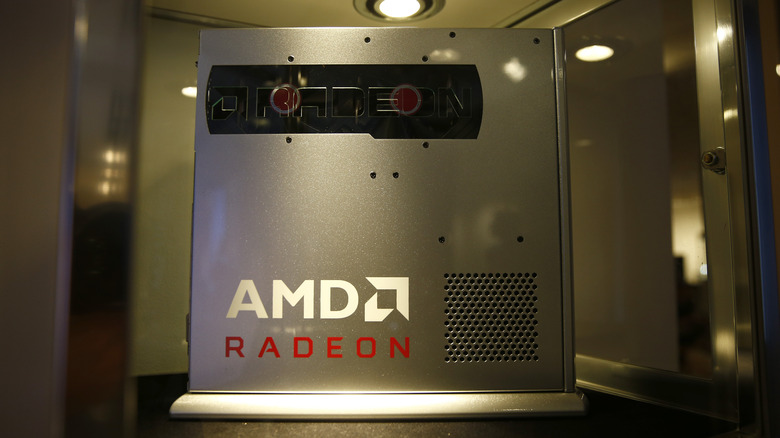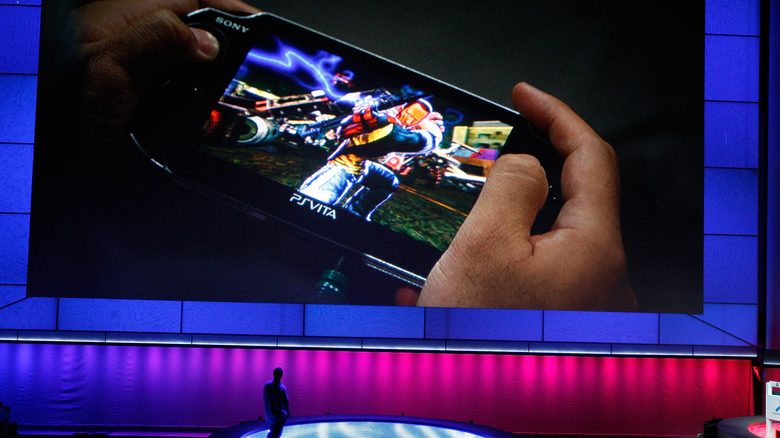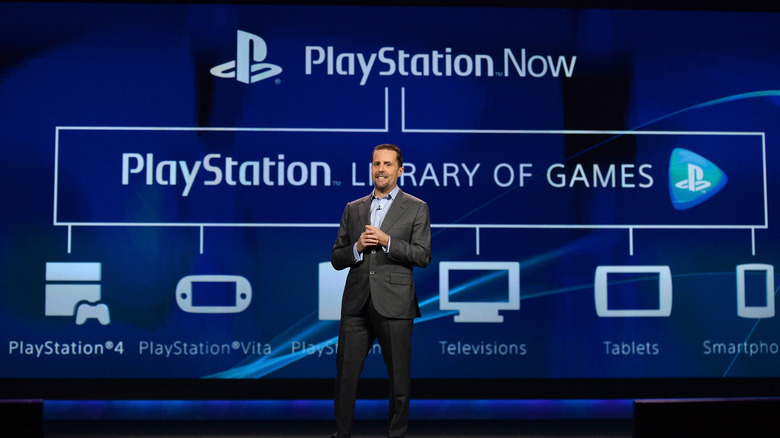Everything You Need To Know About The PS5
We've entered exciting times in the world of console gaming. With the adoption of new technology like 4K televisions and virtual reality, games have become more powerful and more immersive than ever. Bigger budgets, higher frame rates, and advances in motion capture techniques have led to some of the most impressive titles the industry has seen, leaving fans hungering for more.
PlayStation 4, Sony's eighth-generation home gaming console, released in North America in 2013 to general acclaim. Almost three years later, Sony unveiled the PlayStation 4 Pro, an enhanced version of the console offering 4K resolution on supported games and televisions.
In January 2019, sales of the PlayStation 4 hit 91.6 million units worldwide. The PS4 has already outsold its predecessor, the PlayStation 3. With several years of shelf life ahead of it, the PS4 is ideally positioned to overtake the lifetime sales of the PlayStation 2, Sony's best-selling console to date.
Over five years have passed since the PS4 arrived on the scene, leaving hopeful gamers to wonder what the future might hold. Rumors and speculation about Sony's next-generation console abound, and the Japanese giant itself has begun revealing specs for its next-gen hardware. Here's everything you need to know about the PlayStation 5.
Projected 2020-2021 release date
Though Sony has not announced an official release date for the PlayStation 5, signs point to a 2020-2021 launch. In a May 2018 interview, Sony Interactive Entertainment CEO John Kodera said, "We will use the next three years to prepare the next step, to crouch down so that we can jump higher in the future..." Assuming these three years culminate in a new console, this places the PS5 release in 2021.
Sony's decision to skip hosting the PlayStation Experience in 2018 supports Kodera's statement. Usually an annual affair used to showcase new projects, forgoing the event implies they have nothing in the pipeline ready for public attention. Continuing the trend, Sony announced in November 2018 they would be skipping E3 2019, stating: "...we always want to innovate, think differently and experiment with new ways to delight gamers."
According to Daniel Ahamad, an analyst at Niko Partners, a research firm specializing in China's video game industry, Sony has shifted most of its focus from PS4 to PS5 titles. According to his February 2019 statement, studios such as Naughty Dog and Sucker Punch have followed suit.
Reddit user RuthenicCookie, who predicted Sony would pull out of E3 2019 a day before the official announcement, echoed these sentiments. According to them, the PS5 release will come either in March or November 2020 with a reveal in 2019. Though they have not disclosed their sources, the validation of their E3 claim leaves room for cautious optimism about their other predictions.
In an interview with Wired, Sony lead system architect Mark Cerny confirmed the PlayStation 5 would not arrive until after 2019.
Next generation titles already in the works
According to multiple sources, Sony has already placed dev kits in the hands of developers. In March of the same year, journalist Marcus Sellars tweeted: "PS5 dev kits went out early this year to third party developers." The aforementioned RuthenicCookie made a similar statement, claiming most devs had already received dev kits for the new system.
Many developers have also alluded to working on Sony next-gen console games. Some of Rockstar's recent job postings have referenced working on next-generation projects. Though the listings offered no specifics, it's clear Rockstar has some big projects in the works, likely for the PS5.
Enterprising fans have discovered other clues on LinkedIn. A 3D character modeler at Luminous Productions revealed their work on a "new AAA title" for the PS5, adding the project to their LinkedIn resume. Though the user has since removed the entry, screenshots remain, confirming Square Enix has at least one next-gen title in the pipeline.
An Infinity Ward job listing hints at a possible PS5 release. The description calls for a temporary associate game designer, inviting the right candidate to "work with the game industry's brightest on an exciting, unannounced next-gen title." Job openings abound at Defiant Studios, most of which mention "a groundbreaking original AAA IP for next generation platforms." Supermassive also has their hat in the ring. Executive Director Pete Samuels revealed work on "several unannounced PS exclusives" in a November 2018 interview, assuring their relationship with Sony is "still excellent."
Backwards compatibility
According to an April 2019 interview with Mark Cerny, the PlayStation 5 will include backwards compatibility for PS4 titles. A recent Japanese patent application filed by Sony Interactive Entertainment hints at how the company plans to provide this feature. The patent refers to a method for "impersonating CPU ID for backward compatibility." This process tricks the legacy application into believing it is running on the CPU it was designed for to prevent problems, such as synchronization errors.
The application references and updates a previous US patent application filed three years ago. The original patent focuses on "throttling bus performance on the new device in a way that emulates bus behavior of a legacy device." Sony appears to use this or a similar method in the PS4 Pro, with the optional Boost Mode disabling throttling for potential improvements in quality.
Backwards compatibility, a central theme in discussions of potential PS5 features, remains a hot topic among fans. Many hope this will include native disc support, while others are certain older titles would only be available for download through the digital store.
$500 maximum price point
As with every new system, the price of the PS5 is a primary concern among PlayStation fans. RuthenicCookie offers assurances on the topic, claiming the PS5 will retail for $500. Examining the performance of previous consoles, both in and outside of the Sony family, suggests a similar price point.
Bradley Ramsey of PS5 Gamer suggests Sony may follow a similar model to the one used by Microsoft for the Xbox One S and Xbox One X. He suggests Sony will lower the price of PS4 Pro to $250 and release the PS5 at double the cost. As per the contrast effect, this pricing model could result in sales of the PS5, while increasing PS4 Pro sales at the same time.
A look at Sony's pricing trends for previous consoles may hold the key to this puzzle. Both the PS1 and PS2 released at $299; in contrast, the PS3 released at $599+ depending on the model. The massive price jump accompanied the addition of innovative technology, such as Blu-Ray capability, but the increased price tag still alienated players. They reigned the PS4 in at $399.
Console gaming is entering another period of change, ushered in by budding technology such as virtual reality and cloud gaming. This places Sony in a similar situation to when they launched the PS3, with the price increase used to cover greater production costs. With this in mind, a price jump seems inevitable, but Sony will want to avoid repeating its mistakes with the PS3. $500 may prove an acceptable middle ground.
8K resolution
4K televisions continue to gain traction, transitioning the market into the new industry standard. Streaming services such as Netflix have risen to the call for quality while gaming platforms struggle to overcome their technological limitations. Crisp images, vibrant colors, and detailed graphics have become the expectation, rather than the sensational exception. Resolution has long occupied the minds of Sony fans, leading to an ongoing debate over the quality the PS5 would offer. Though predictions pointed towards a 4K console, Sony's Mark Cerny revealed in an April 2019 interview that their next-generation PlayStation would include 8K support. Surpassing the capabilities of the 4K optimised PlayStation 4 Pro, this addition alone raises the bar to a whole new level.
Though the jump to 8K sounds exciting on paper, it's important to remember that 8K televisions remain few and far between. With a limited selection of 8K models to choose from accompanied by tremendous price tags, 4K televisions will likely remain the standard for years to come. By launching with 4K and 8K support, the PlayStation 5 will enjoy increased longevity by continuing to deliver a high-quality experience as industry expectations evolve.
Upgraded specs will pack a punch
According to Mark Cerny, the PlayStation 5 will feature a third-generation AMD Ryzen CPU, complete with eight cores of their new 7nm Zen 2 microarchitecture. With a custom 3D audio unit built in, Cerny hopes the AMD chip will provide the audio enhancements gamers have been hoping for: "With the next console, the dream is to show how dramatically different the audio experience can be when we apply significant amounts of hardware horsepower to it."
The PlayStation 5's GPU will be a custom variant of Radeon's Navi family, unlocking performance capabilities previously unseen on console systems. Key among these enhancements is ray tracing, "a technique that models the travel of light to simulate complex interactions in 3D environments." A staple of Hollywood visual effects, ray tracing enhances the realism of a scene by mimicking the way light bounces from object to object. Cerny revealed the technology has additional audio benefits. "If you wanted to run tests to see if the player can hear certain audio sources or if the enemies can hear the players' footsteps, ray tracing is useful for that," he told Wired. "It's all the same thing as taking a ray through the environment."
These details seem to match references deciphered by a Japanese tech blogger from what they claim is AMD's internal reference code to the PS5. According to the tweet, the code mentioned an SM-enabled Zen+ core, 3.2Ghz of processing power, and a Navi 10Lite GPU.
VR integration
Sony is no stranger to the growing virtual reality scene. In October 2016, they released the PlayStation VR, a virtual reality headset designed to go hand-in-hand with the PlayStation 4. Like most VR gaming systems on the market, PS VR has its share of pros and cons. Restricted to the capabilities of the PS4, it's difficult to compete with the powerhouse performances of some higher-end gaming PCs. Still, an impressive stream of games bolstered by a convenient, at-home experience has led to the sale of over three million PS VR systems worldwide.
The popularity of its virtual reality system, which surprised even Sony itself, has led many to speculate about what role the technology will play in the success of the PlayStation 5. A patent application filed by Sony in November 2018 hints what VR features the PS5 may hold in store. The patent is for a new controller described as "CONTROLLER HAVING LIGHTS DISPOSTED ALONG A LOOP OF THE CONTROLLER." The design is similar to those used for the PS Move but seem in-line with the needs of a VR system.
The alleged spec leak provided by SemiAccurate also mentioned virtual reality, claiming the PS5 would have "VR goodies baked in at the silicon level." If the quiet success of the PS VR is any sign, the market seems primed for a more powerful console-based VR experience. The PlayStation 5 may just be the system to deliver it.
Touchscreen controller
During recent years, the role of mobile gaming has grown within the industry. The resounding success of the Nintendo Switch, which has sold over 32.27 million units since its a release in 2017, is a shining example of the growing demand for portable devices.
Another patent filed by Sony in November 2018 suggests the company may shift its focus towards better mobile capabilities. The patent describes "a touchscreen defined along the top surface of the main body between the first extension and the second extension" and appears to be an update to the DualShock 4.
This is not the first time the concept of a portable PlayStation controller has come up. In its 2017 FY financial report, Sony mentioned developing 5G technology for use across the Sony Group and this technology's ability to "connect all portable devices to the cloud."
With poor smartphone sales, portable gaming may hold the highest profit potential for 5G technology. This fits with comments made by John Kodera in May 2018, indicating a shift in focus from hardware to online subscription services. "We're no longer in a time when you can think just about the console or just about the network like they're two different things," said Kodera.
Given the growing focus on streaming and cloud-based gaming, a 5G-enabled PS handheld would be a smart move if executed properly. Taking a page from Nintendo's book, the PlayStation 5 is a prime opportunity to deliver a new hybrid console experience.
Better cloud support
Cloud gaming is a hot topic in the gaming industry, with good reason. The capability to stream games on your devices of choice with no expensive console is an appealing concept. This powerful draw has companies such as Microsoft, Google, Apple, and even Verizon drawing up plans for cloud-based platforms.
Sony was one of the first major players to enter the cloud streaming scene with the North American launch of PlayStation Now in 2014. Despite its availability for the past 4+ years in multiple countries, PS Now has remained underwhelming because of lag and quality issues.
Despite the challenges they've encountered, Sony seems to recognize the impact cloud-based gaming will have on the future. A Sony job listing seeking a Staff Software Engineer for its CDN Cloud Engineering Team has spawned speculations about the expanded role cloud streaming will play in the PS5.
These rumors may hold some weight. In a Mad Money interview, the CEO of AMD mentioned the importance of cloud gaming, saying they were working with Sony on future consoles. Ubisoft's CEO also weighed in on the topic, saying that the next generation of consoles may be the last before the transition to high-end cloud-based streaming.
These observations, coupled with the Sony job listing's mission statement of "putting console-quality video games on any device," make a PlayStation 5 with better cloud support seem logical.
Blu-ray XL discs
In November 2018, Sony released the industry's first quad-layer Blu-ray discs. The BDXL specification, which the new discs use, was first introduced back in 2010 by the Blu-ray Disc Association. Primarily intended for commercial use, this first iteration featured three layers with a total 100 GB storage capacity.
In contrast, Sony's quad-layer discs can store 33.4 GB of content on each layer, for 128 GB total. To create these discs, Sony had to design three new materials. These included a new recording alloy, a new inter-layer material, and a new protective coating.
Given the release timeline, it's possible Sony will use these discs for the PS5. If this is the case, it would mean expanded game storage potential, possibly accompanied by a higher purchase price due to increased material costs.
With the size of games rapidly increasing, this new storage potential has come at the right time. Armed with this technology, some fans believe this places Sony in a position to keep physical media alive, extending the life of console gaming in the face of the growing cloud-based market.
Sony may undercut Xbox with surprise 2019 release
While most expect a 2020 release, some industry analysts have suggested the PS5 will drop Christmas 2019 in a surprise move by Sony to outmaneuver the next-gen Xbox.
According to T3's Robert Jones, Sony's decision to skip E3 2019 and PSX 2018 hint at a more nuanced launch strategy. Jones points to a Sony job listing posted in October 2018 to support his theory. The listing called for a Sr. Product Manager to own the strategy for a new PlayStation campaign by analyzing "industry trends and competition to contribute towards product strategy for PlayStation Campaign." Given the timing of the posting, Jones believes this is part of Sony's plan to release the PS5 before the Xbox Scarlett can hit the shelves.
A report from Japanese firm Ace Securities supports a Christmas 2019 release, though supply issues could cause a delay. According to Murata Manufacturing and TDK, Sony may be unable to get enough monolithic ceramic capacitors (MLCC) to meet their needs in the allotted time frame.
Demand for MLCCs has increased due to new car models hitting the market. These new models, coupled with the surge of advanced smartphone technology to meet the needs of 5G mobile services, has placed a strain on the supply and demand chain for monolithic ceramic capacitors.
If the predictions prove correct and Sony can secure the parts they need, a Christmas 2019 release would be quite the coup.
Solid state drive
The PlayStation 5 will include a solid-state drive, making it the first console of its kind. Though the Xbox One and PS4 both offer external SSDs, the variant built in to Sony's next-gen model promises to usher in a new frontier for gaming. Significantly decreased fast travel times will make getting around massive maps less tedious. Environments will render faster, allowing characters to move through the world at greater speeds, all while maintaining high-quality graphics resolution. Loading screens and other common game components will change. Cerny said, "We're very used to flying logos at the start of the game and graphic-heavy selection screens, even things like multiplayer lobbies and intentionally detailed loadout processes, because you don't want players just to be waiting."
Though Sony has released no specifics about the PS5's sold-state drive, Cerny claims its raw bandwidth is higher than any SSD available for PCs. Highlighting the input-output mechanisms and software stack of the new system, Cerny performed a fast travel demo using the PS4 Pro and a devkit version of the new system. The devkit blew the older console away, delivering a fast travel experience that was 19 times faster.

